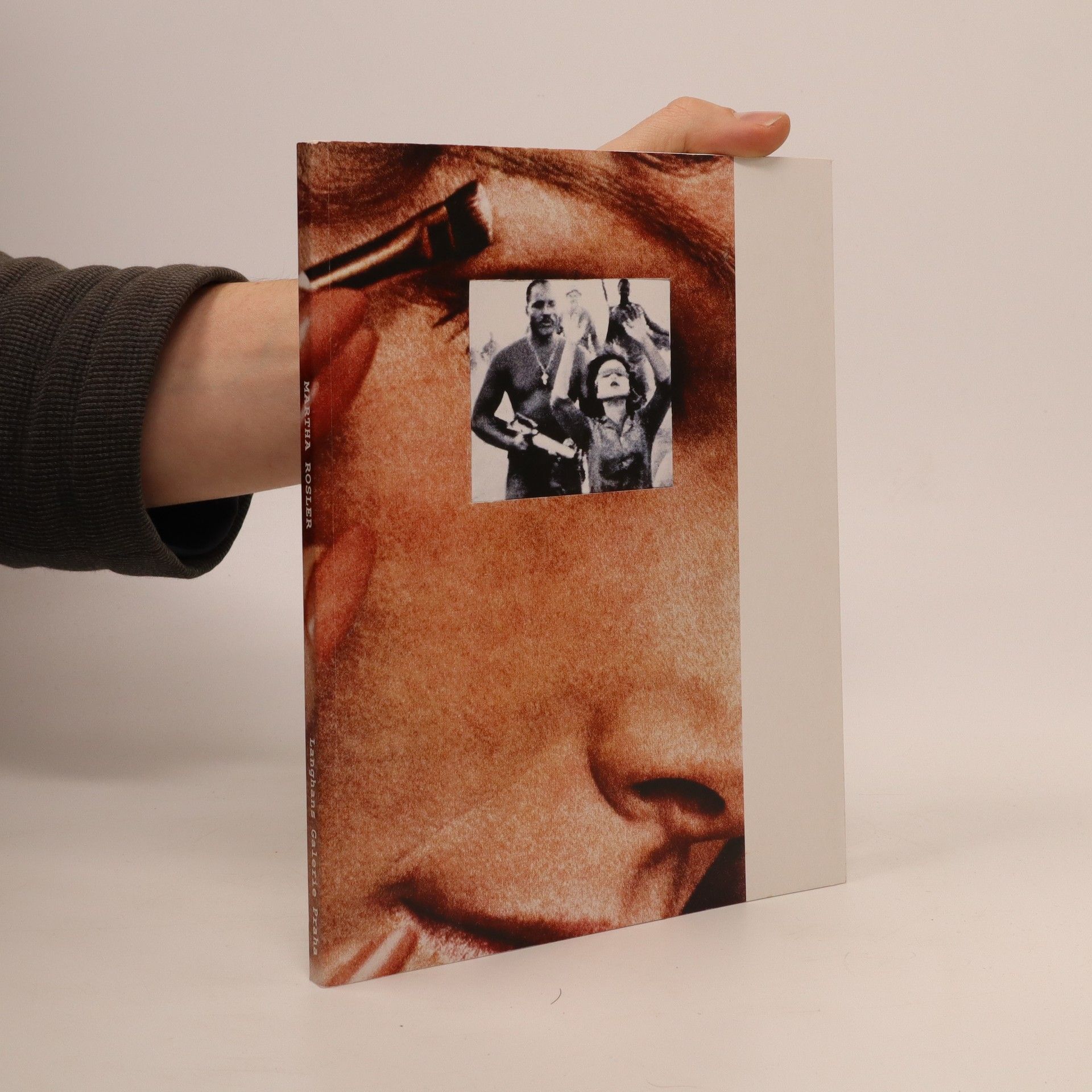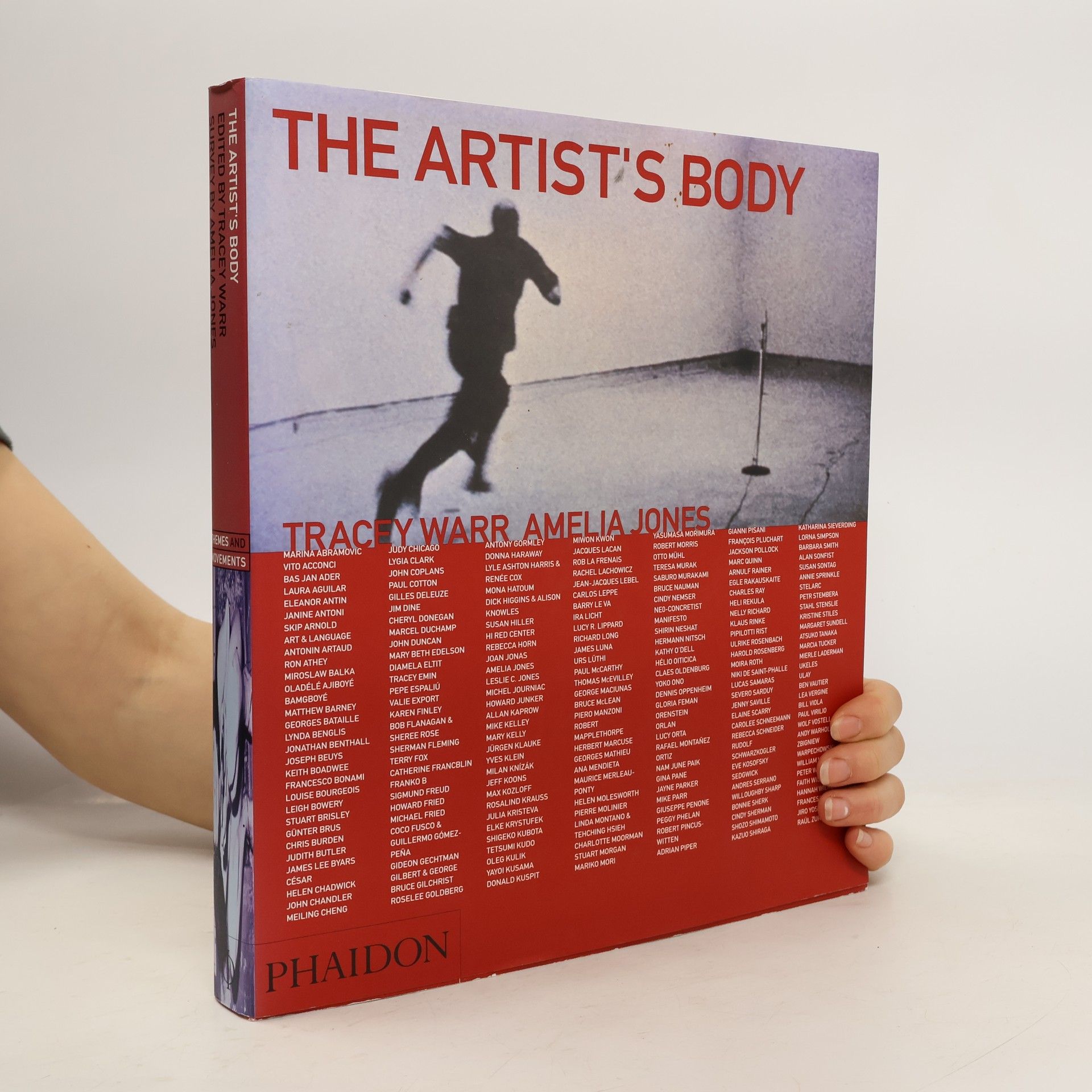Martha Rosler ist eine der politisch engagiertesten Künstlerinnen ihrer Generation. Die Auseinandersetzungen, die Rosler in ihren Arbeiten führt, finden ihren Ausgangspunkt zumeist in dem, was gewöhnlich und selbstverständlich erscheint: Wohnen, Einkaufen, Nachrichten sehen, Zeitung lesen, Reisen. Sie macht dabei sichtbar, auf welche Art und Weise diese Tätigkeiten gesellschaftlichen Normierungen unterliegen. Die seit den 1980er Jahren entstandenen fotografischen Serien, die der vorliegende Band präsentiert, greifen diese Themen ebenfalls auf: Es sind Studien alltäglich zu bewältigender Wege, Ansichten von Highways, U-Bahnschächten, Flughäfen, Einkaufsmeilen und Parkanlagen. Sie belegen auf verblüffende Weise die fotografische Leidenschaft der Bilderstürmerin Martha Rosler und analysieren zugleich die den alltäglichen Bewegungen eingeschriebenen strukturellen Machtverhältnisse. Ausstellung: Sprengel Museum Hannover 30.1.-16.5.2005 · Gesellschaft für Bildende Kunst in Zusammenarbeit mit dem haus am Kleistpark, Berlin 9.9.-23.10.2005
Martha Rosler Livres
Martha Rosler est une artiste américaine dont le travail se concentre sur la vie quotidienne et la sphère publique, souvent en portant un regard sur les expériences des femmes. Sa pratique artistique couvre la photographie, la vidéo, l'installation, la sculpture, la performance ainsi que l'écriture sur l'art et la culture. Le travail de Rosler s'attache principalement à un examen critique des structures sociales et de leur impact sur les individus.

![London garage sale, Martha Rosler ; [accompanies: Martha Rosler, London Garage Sale (4 June - 17 July 2005) at the Institute of Contemporary Arts, London]](https://rezised-images.knhbt.cz/1920x1920/0.jpg)




In the place of the public
- 168pages
- 6 heures de lecture
A fascinating look at artistic experiments with televisual forms.Following the integration of television into the fabric of American life in the 1950s, experimental artists of the 1960s began to appropriate this novel medium toward new aesthetic and political ends. As Erica Levin details in The Channeled Image , groundbreaking artists like Carolee Schneemann, Bruce Conner, Stan VanDerBeek, and Aldo Tambellini developed a new formal language that foregrounded television’s mediation of a social order defined by the interests of the state, capital, and cultural elites. The resulting works introduced immersive projection environments, live screening events, videographic distortion, and televised happenings, among other forms. For Levin, “the channeled image” names a constellation of practices that mimic, simulate, or disrupt the appearance of televised images. This formal experimentation influenced new modes of installation, which took shape as multi-channel displays and mobile or split-screen projections, or in some cases, experimental work produced for broadcast. Above all, this book asks how artistic experimentation with televisual forms was shaped by events that challenged television broadcasters’ claims to authority, events that set the stage for struggles over how access to the airwaves would be negotiated in the future.
In this collection of essays Martha Rosler embarks on a broad inquiry into the economic and historical precedents for today's soft ideology of creativity, with special focus on its elaborate retooling of class distinctions. In the creative city, the neutralization or incorporation of subcultural movements, the organic translation of the gritty into the quaint, and the professionalization of the artist combine with armies of eager freelancers and interns to constitute the friendly user interface of a new social sphere in which, for those who have been granted a place within it, an elaborate retooling of traditional markers of difference has allowed class distinctions to be either utterly dissolved or willfully suppressed. The result is a handful of cities selected for revitalization rather than desertion, where artists in search of cheap rent become the avant-garde pioneers of gentrification, and one no longer asks where all of this came from and how. And it may be for this reason that, for Rosler, it becomes all the more necessary to locate the functioning of power within this new urban paradigm, to find a position from which to make it accountable to something other than its own logic. e-flux journal Series edited by Julieta Aranda, Brian Kuan Wood, Anton Vidokle
Since the early 1970s, influential American artist Martha Rosler has explored contemporary society through vernacular culture and daily experiences. For the Institute, she presents her iconic work, Garage Sale, inviting visitors to sift through piles of items, bargain with sales assistants, and purchase displayed goods, with all proceeds going to charity. Originally held in 1973 at the University of California, San Diego, this installation and performance piece was marketed as both a jumble sale in local newspapers and an art event within the community. The exhibition features second-hand items—clothes, books, records, toys, costume jewelry, and personal mementos—arranged on racks and tables for sale. Garage Sale critiques the status of art, examining it as a fetishized object and commodity while representing a subjective history and way of thinking. This work serves as a powerful metaphor for personal and social relations, particularly within the politically charged context of the women's movement in the 1970s. Through this immersive experience, Rosler encourages reflection on the intersection of art, commerce, and community engagement.
Martha Rosler: Photographic works 1965-2008 = fotografické práce 1965-2008 : Langhans Galerie Praha
- 89pages
- 4 heures de lecture
Themes & Movements: The Artist's Body
- 304pages
- 11 heures de lecture
Tracing artists' increasing use of their bodies as subject and actual material of their artworks, this title charts the rise of new forms of expression such as Body Art, Happenings, Performance and Live Art.
